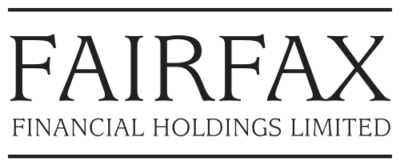Fairfax Financial Holdings Ltd. (TSX:FFH) shares have declined nearly 14% year to date. Are the shares cheap? Should you buy on the dip?
First, let’s check out the business.
A business overview
Fairfax Financial is more complex to analyze than the average business. It is a holding company of casualty and property insurance businesses, from which it generates premiums. It invests those premiums for higher returns, similar to what Warren Buffett does with Berkshire Hathaway.
Some investors question Fairfax Financial’s largest stock holding in its U.S. equity portfolio, BlackBerry, in which it has a ~9% stake and is under the water by about 35% from BlackBerry’s recent quotation of about US$11 per share. But to put things in perspective, Fairfax Financial’s stock investments only make up a part of its entire investment portfolio.
At the end of the first quarter, Fairfax Financial’s investment portfolio had US$27,558 million of assets, of which 39% were subsidiary cash and short-term investments, 27% were bonds, and 15% were common stocks. So, its subsidiaries have plenty of ammunition to take advantage of a market correction when it occurs.

Long-term performance
Admittedly, Fairfax Financial shares have done poorly in the recent past. However, it has created tremendous value for long-term shareholders. From 1985 to 2016, Fairfax Financial compounded its book value per share by ~19% per year. And over the long term, it aims to compound its book value per share by 15% per year through disciplined underwriting and value investing.
Recent developments
The latest acquisition Fairfax Financial is working on is Allied World (NYSE:AWH), which it expects to close by the end of this month. It’s paying ~1.37 times diluted book value, which is a premium to Fairfax Financial’s share price, while it plans to fund about US$2.4 billion (~49%) of the acquisition by issuing new shares.
Although Fairfax Financial is paying a premium for Allied World, the acquisition will strengthen Fairfax Financial’s business by diversifying its premium base and earnings profile.
Notably, Allied World has an S&P credit rating of BBB+, which is two notches higher than Fairfax Financial’s BBB-. Additionally, Allied World has achieved attractive underwriting results — since its inception 15 years ago, its average combined ratio has been 90.7%. As well, it has compounded its book value per share by 13% per year over the last decade.
Investor takeaway
At about $558 per share, Fairfax Financial trades at a price-to-book multiple of about 1.2. This is a reasonable multiple to pay for the shares. Shareholders are also compensated with a ~2.3% yield.
That said, historically, it’s an excellent time to buy the shares when they trade at or below book value. So, patient investors can consider waiting for any further dips before buying.








